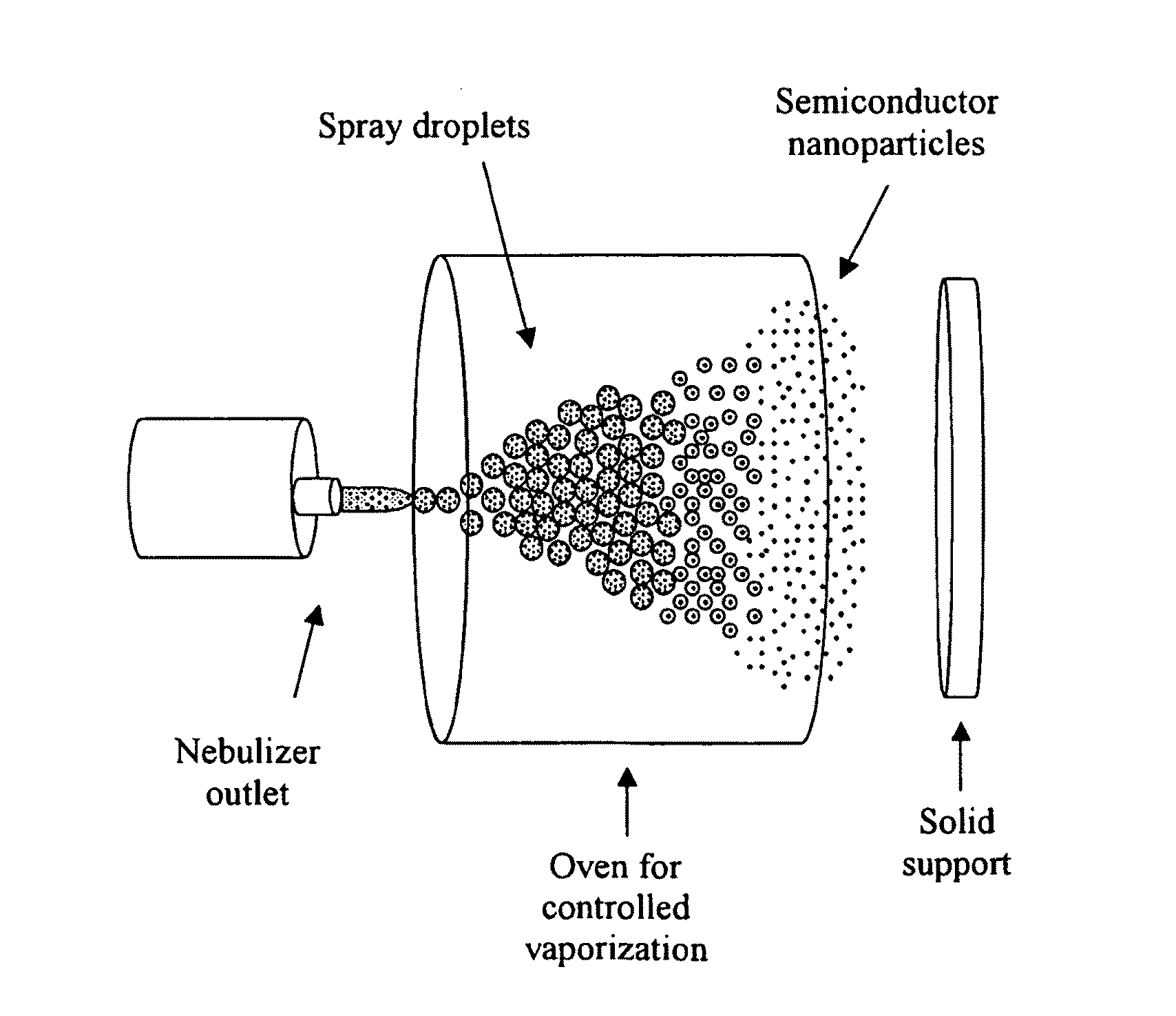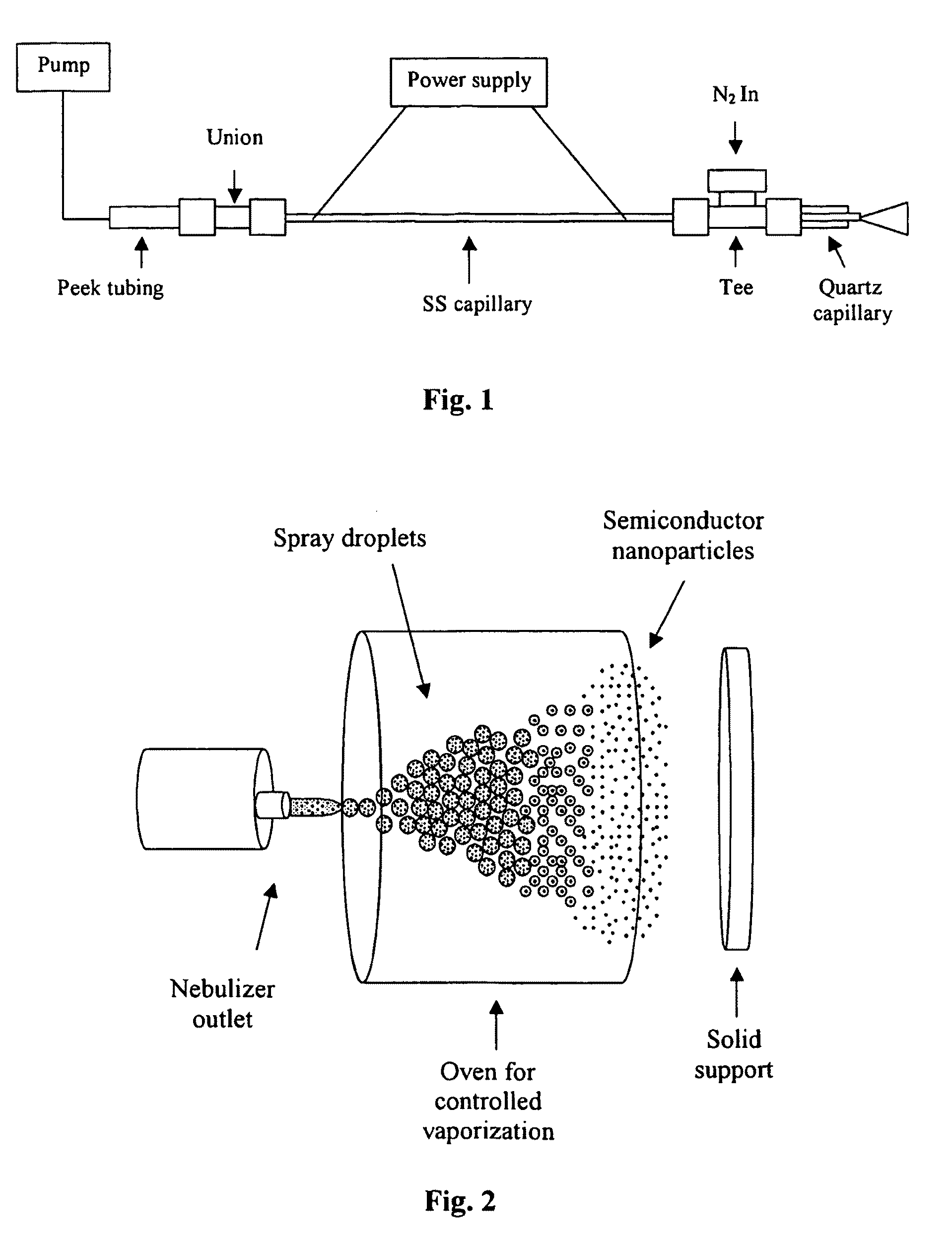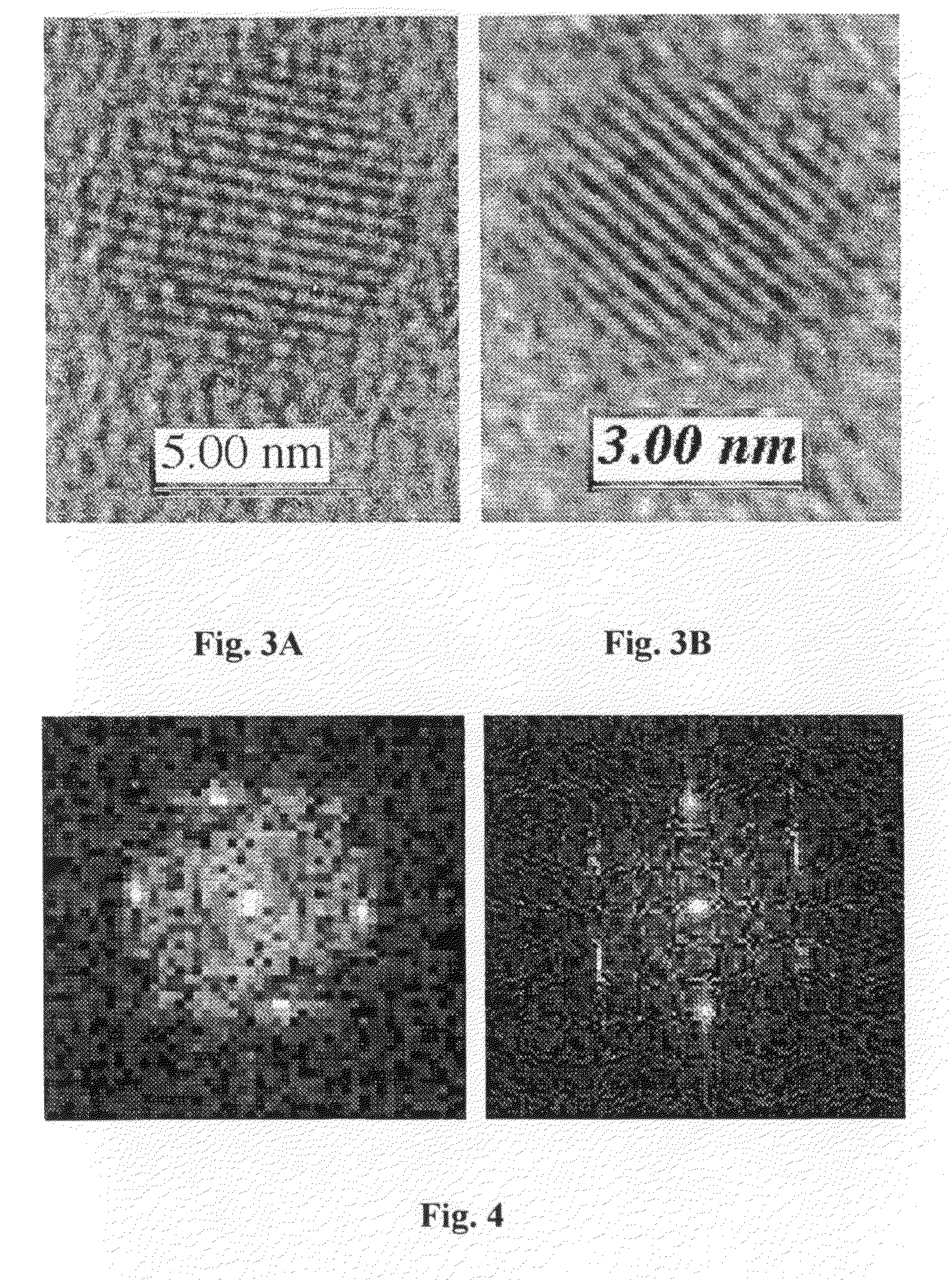Spray method for producing semiconductor nano-particles
a nano-particle and nano-particle technology, applied in the direction of coatings, transportation and packaging, mercury compounds, etc., can solve the problems of nano-particle doping, limited liberty to choose the substrate, and high cost, and achieve the effect of preventing adverse liquid solvent effects
- Summary
- Abstract
- Description
- Claims
- Application Information
AI Technical Summary
Benefits of technology
Problems solved by technology
Method used
Image
Examples
example 1
Production of CdS Nanocrystals by Pneumatic Assisted Thermospray
[0073]Cadmium sulfide nanocrystals were intensively investigated in the past few years and thus serve as a good sample for demonstrating the method of the present invention.
[0074]Cadmium sulfide powder (commercially available from Aldrich) was dissolved in HPLC grade methanol. Spray of droplets of the solution of cadmium sulfide was generated using pneumatic assisted thermospray. The thermospray apparatus employed a stainless steel capillary (0.005″ ID, 0.020″ OD, 20 cm long), with liquid pumped through it by an HPLC pump (model PU-1585, JASCO, Japan) and through a polyetheretherketone (PEEK) tubing (0.0025″ ID, 1 / 16″ OD). The PEEK tubing was connected to the stainless steel capillary by a PEEK union. A heating power supply (Manson NP-9613) was connected to two points on the capillary, by specially designed clamps. The positive point was located near the inlet side and the negative point was located about 8 cm further d...
example 2
Production of CdS Nanocrystals by Pneumatic Assisted Electrospray
[0078]Cadmium sulfide powder (commercially available from Aldrich) is dissolved in HPLC grade methanol. Spray of droplets of the solution of cadmium sulfide is generated using electrospray. The electrospray apparatus employs a stainless steal (SS) capillary (0.005″ ID, 0.020″ OD, 10 cm long, Upchurch), with liquid pumped through it by an HPLC pump (model PU-1585, JASCO) and through a PEEK tubing (0.0025″ ID, 1 / 16″ OD). The PEEK tubing is connected to the SS capillary by a PEEK union. A high-voltage power supply (Stanford, model PS 350) is connected to the outlet of the capillary. The capillary is then entered into a PEEK tee-shaped structure in order to supply a nitrogen gas flow for pneumatic assistance. The gas flows out of the tee through a quartz tube surrounding the capillary. A Kanthal wire is looped on the quartz tube and serves as a heating source. The spray is collected on the desired substrate, which serves a...
PUM
| Property | Measurement | Unit |
|---|---|---|
| diameter | aaaaa | aaaaa |
| diameter | aaaaa | aaaaa |
| diameter | aaaaa | aaaaa |
Abstract
Description
Claims
Application Information
 Login to View More
Login to View More - R&D
- Intellectual Property
- Life Sciences
- Materials
- Tech Scout
- Unparalleled Data Quality
- Higher Quality Content
- 60% Fewer Hallucinations
Browse by: Latest US Patents, China's latest patents, Technical Efficacy Thesaurus, Application Domain, Technology Topic, Popular Technical Reports.
© 2025 PatSnap. All rights reserved.Legal|Privacy policy|Modern Slavery Act Transparency Statement|Sitemap|About US| Contact US: help@patsnap.com



